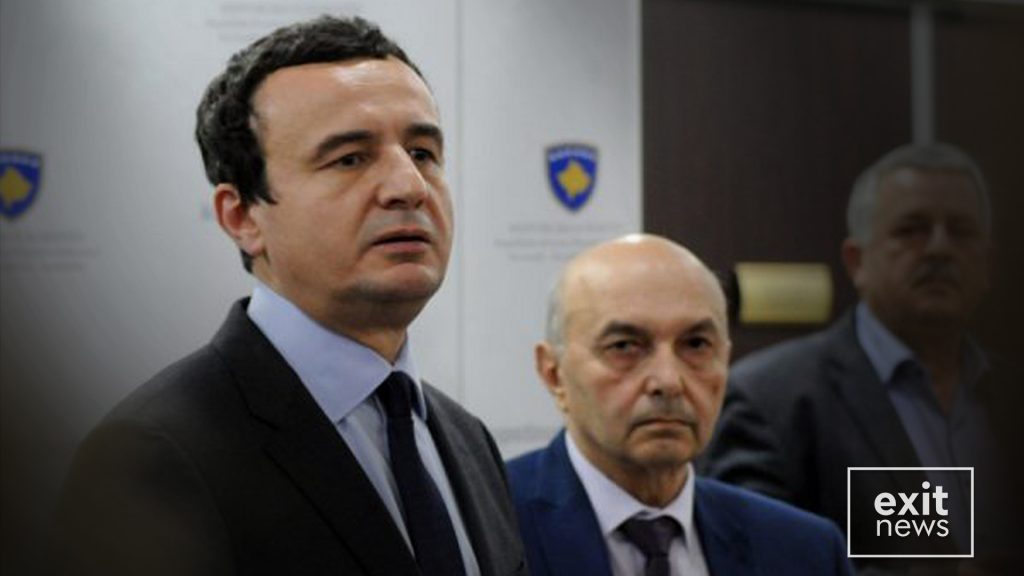By Altin Gjeta

Kosovo went into last October’s snap elections facing the same old problems—lingering poverty, massive youth unemployment, endemic corruption and state capture, and on top of everything facing Serbia’s never wavering de-recognition campaign of its independence, while the Pristina-Belgrade has come to a full stop.
In an opinion piece just before elections, I argued that elections needed to bring real change and that people Kosovo should vote opposition parties which once in power should work to pull Kosovo’s statehood and democracy out of the edge.
The election’s outcome, with the two main opposition parties, LVV and LDK, as the clear winners, was a blow to the old war guard which ruled the country for more than a decade since its independence. In a report for the European Politics and Policy at the London School of Economics, Blerim Vela asserted that “voters have clearly punished the PDK, NISMA and AKR for what they see as corrupt and inept governance”.
Suddenly, there were big hopes that this result would open for Kosovo a new chapter and bring significant change.
However, more than two months since the electoral results were officially confirmed, LVV, which came first, and LDK, a close second, haven’t been able to create a coalition government, which would materialize the people’s will for change.
Government formation talks which seemed at ease in the beginning have turned to be a difficult business as the two parties have not found a consensus for sharing power. The President’s post, which will be available next year when the incumbent’s Hashim Thaci tenure ends, has become the Gordian knot of the government formation. The LVV’s leader Albin Kurti has refused to include filling of President’s post in the government formation talks, with LDK insisting that a consensus on which party should fill the position should be reached now.
To make matters worse, the new parliament was constituted before the two parties could reach a coalition agreement, and LVV nominated its vice chairman Glauk Konjufca as the new speaker of the Assembly, who was actually elected to the position. But his position was understood to be part of the power-sharing agreement, and most likely occupied by a LDK nominee.
This development hardened the division between the two parties, lowering the chances Kosovo will have a new government in the future.
But most importantly, this disagreement is eroding the Kosovo people’s hope of a transformational change. As Eraldin Fazliu points out in recent article, this situation has halted the transition of power, deepened political divisions in Kosovo and ultimately it is diminishing the sense of hope for change that both parties promoted during their election campaign.
It is ironic that the two parties who named and shamed the old political elite as a corrupt class with no principles except lust for power is now seen as fighting for power.
Both sides are to be blamed for this standstill. LDK seems to be held hostage of its old guard still controlling the party which is playing the ‘take it or leave it’ card in the negotiations with LVV. They know that LVV will not choose to ally with any other party in a government coalition, and are using this to seize as much power as they can. Such efforts also aim to undermine the rising leadership of the 37 year old Vjosa Osmani, party’s candidate for prime minister during the elections.
On the other hand, LVV has not shown much flexibility in negotiations and its leader Albin Kurti made a mistake by nominating his deputy Glauk Konjucfa for speaker of the Assembly, before reaching a power-sharing agreement with LDK.
Whilst the international pressure is mounting on both parts to go towards an agreement and materialize the electoral result the government formation saga has returned to its very beginning stage. While the deadline looms for Kurti to form the government, Prishtina Insight reports that “there is no rapprochement between the two parties”.
Though there is still time to find common ground and reach an agreement between the two parties, much damage has already been done to their public image and people’s trust in them. The saga of power-sharing negotiations has waned the hope for a new political class that sees power as a mean for transformation not as an end in itself.
Unfortunately, even an agreement will eventually be achieved, it now seems likely that the coalition might not work or last long, as the accusations parties threw at each other during negotiations have undermined the mutual trust that is required for the smooth functioning of a coalition government. As past experience has shown every time, governing partners in Kosovo try harder to undermine each-other politically rather than making their relationship work.
Therefore, the near future of Kosovo, both in case of a last minute ‘forced’ coalition government or eventual fresh elections, looks uncertain and dismal while the challenges it faces are crucial for its statehood and democracy. Three months after the October elections, the big hopes of change resulted an illusion.
- New EU Accession Methodology: Process Reversible, More Credibility Needed
- Kosovo Parties Close To Agreement On Coalition Government, Local Media Report

